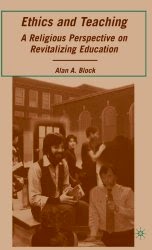
Today’s
New York Times contains two interesting pieces. The first is a front page story that provides a “rare look at the lengths the Catholic Church goes to keep clergy members’ clandestine relationships hidden.” Apparently a Catholic priest, a member of the Franciscan order (!) has engaged in several (at least) affairs with parishioners, fathered (ironic use of the term here) a son who is now terminally ill. Today, this Father refuses, despite his son’s medical condition, to contribute any further to his care and maintenance. Apparently there was an original agreement that set limits on his future responsibility to the family. When asked to comment from his present position as a priest in a Catholic community near Ashland Wisconsin, the article said that “he did not want to talk about the situation, and pointed out that Ms. ____ had more to lose than he did because she had signed a confidentiality agreement that, if broken, requires her to pay a penalty. He asserted that Ms. ____ had shown no care for his needs and was only concerned about money, and that his son had shunned him. He said that he and the Franciscans had done nothing bad.” Abusing his position as spiritual advisor, violating his clerical oaths, and attempting to contract his way out of responsibility for the lives he disrupted must not be considered bad in the Catholic organization to which he pledges allegiance.
The article notes that “the relationship between Ms. Bond and the priest is hardly unique. While the recent scandals involving the Roman Catholic Church have focused on the sexual abuse of children, experts say that incidences of priests who have violated sexual and emotional boundaries with adult women are far more common.” There are, it would seem, many problems out there caused by the abuses perpetrated by Church officials. Perhaps it is time we demanded reform!! There should be national standards for priests and for the administrators who must supervise them. We need alternative routes to the priesthood. Let us start closing those institutions out of which such priests enter the communities they are educated to serve. Perhaps we might institute a national test for the ordination of priests. Let us bring the Catholic Church hierarchy to its knees in our effort to repair the egregious sins they have allowed to occur and refuse to punish!
In the same newspaper in an Op-Ed piece from October 14, Nicholas Kristof berates the powers that be for the horrible state of our nation’s schools, a result, he suggests, due to the incompetency of our teachers. He writes, “Good schools constitute a far more potent weapon against poverty that welfare, food stamps or housing subsidies. Yet, cowed by teachers’ unions, Democrats have too often resisted reform and stood by as generations of disadvantaged children have been cemented into an underclass by third-rate school.” Attributing the low status of these schools to the inferiority of the teachers who work in them, Kristof advocates a more liberal system of licensing charter schools and a more thorough method of removing inept or abusive teachers.
The suggestion here is that until we do something about our incompetent teachers the legacy of Brown vs. the Board of Education will not succeed.
When I hear arguments like this I go outside my cabin and scream bloody murder. Citing a few cases of what
might be real incompetence, Kristof moves immediately to the indictment of the whole profession. He says that “Research has underscored that what matters most in education—more than class size or spending or anything—is access to good teachers.” Regardless of the conclusions of this study (dubious at best: in one section the study cites as evidence reports from one school district and then assumes that the results should apply to all) Kristof has neglected the extensive research of Professors Richard Rothstein and David Berliner. Neither scholar discount the role of the teacher, but both acknowledge the tremendous influence social environment has on the educational possibilities available to a child in our schools.
An analogy: If I smoke a pack of cigarettes a day and I go to my doctor and she tells me that if I don’t stop smoking soon I will die, shall I blame the doctor if I refuse to quit my habit and my health continues to worsen? Is she to blame for my premature death?
If a child is learning to read but there are no books for her to read, is it the fault of the teacher that the child’s reading does not progress as rapidly as those children surrounded by books? If the child lives in an environment where lead poisoning is an issue, is it the fault of the teacher that the child has trouble learning? If there is no medical care for children’s ear infections, is it the fault of the teacher that the child’s hearing is impaired and cannot hear effectively? And so on, and so on, and so on.
Why is it that we keep blaming victims? The priest says that by asking for financial assistance to care for their dying son, the woman is violating an agreement. Then what can be said for his violation of fundamental ethical responsibilities? Its all her fault, finally, he seems to say. Are teachers victims? Of course they are as long as they are the target of public accusations but have no platform from which to speak for themselves. Kristof attacks the one viable organization that speaks for teachers—the Unions, and he blames the Unions for collaborating in the educational debacle.
And then Kristof has the nerve to equate the Democratic Party’s commitment to health care reform with its lack of commitment to educational reform. As if the former isn’t intimately connected to the latter. How many ears and eyes must one man have before . . . well, you know the rest.
This is a rant. I know. I know. I wish I could apologize but I'm just too angry.















